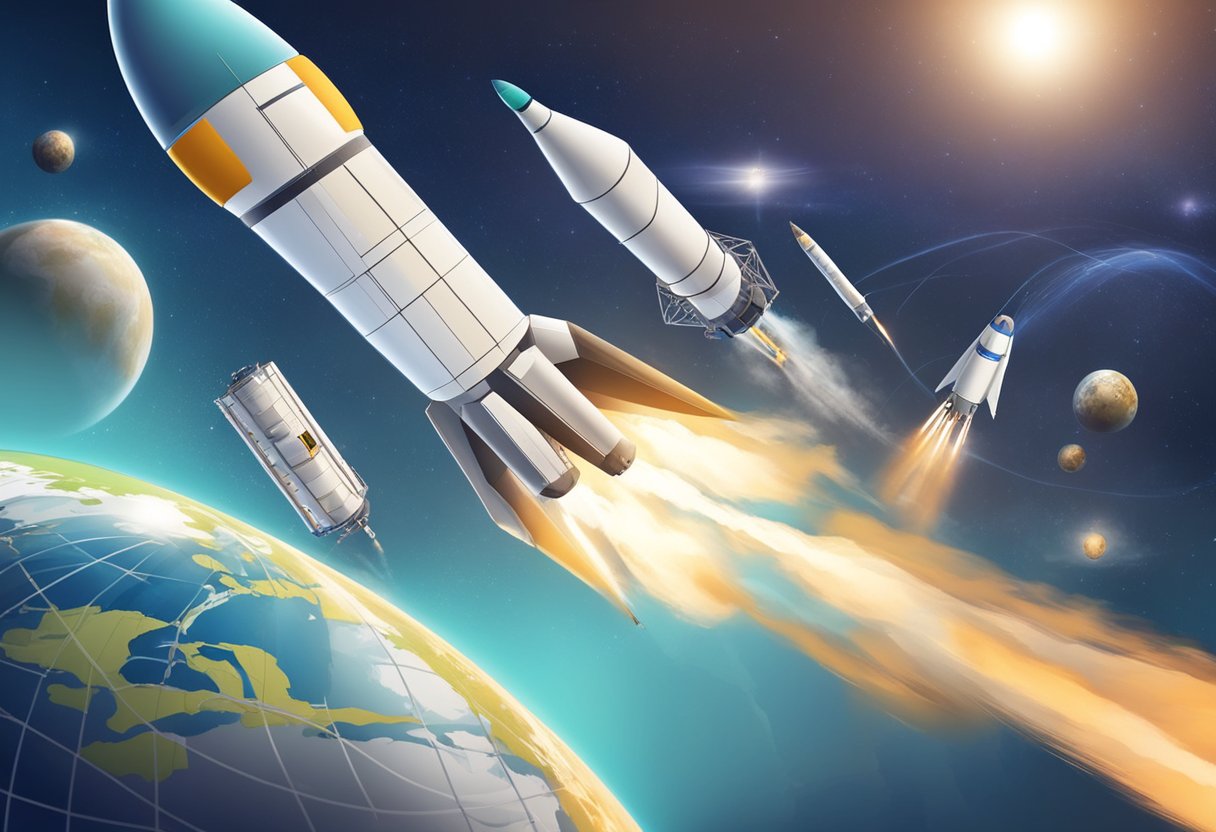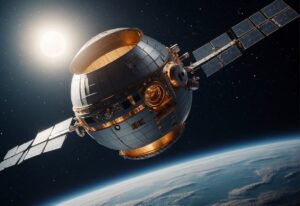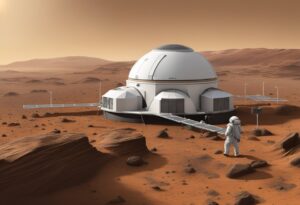Space exploration has been a topic of interest for scientists and researchers for decades, and with good reason. The impact of space exploration on the global economy has been immense.
The space industry has inspired growth in a variety of industries and concentrations, making it an invaluable and time-tested contributor to the global economy.
The economic impact of space exploration has been significant. According to the Space Foundation, the space economy was valued at $469 billion in 2021, up 9 percent from 2020, the highest recorded growth since 2014.
The private sector has played a significant role in driving this growth, with companies such as SpaceX and Blue Origin investing heavily in space exploration and technology.
Advancements in space technology have also contributed to the growth of the global space economy. The development of new materials, propulsion systems, and communication technologies has led to the creation of new industries and the expansion of existing ones.
Additionally, space exploration encourages greater international cooperation, strengthening the global economy.
Key Takeaways
- Space exploration has a significant impact on the global economy.
- The private sector plays a significant role in driving growth in the space economy.
- Advancements in space technology have contributed to the growth of the global space economy.
Economic Impact of Space Exploration
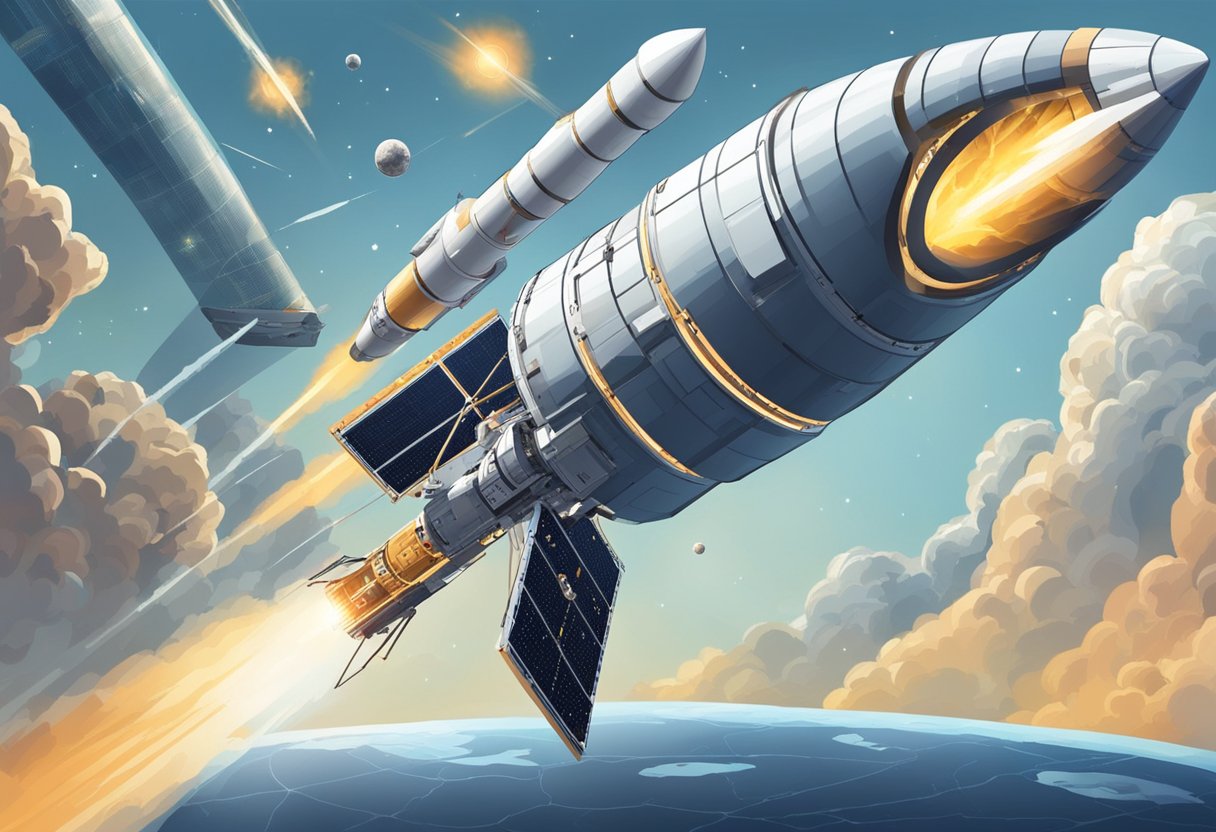
Space exploration has had a significant impact on the global economy, with benefits ranging from technological innovation to job creation and education. Here are some of the ways in which space exploration has boosted the economy:
Boosting Technological Innovation
One of the most significant impacts of space exploration has been the advancement of space technology. The development of new technologies for space exploration has led to innovations in other industries such as medicine, transportation, and energy.
For example, NASA’s research on space suits has led to the development of protective clothing for firefighters and hazardous material workers.
Creating Jobs and Industries
Space exploration has created numerous job opportunities and industries. The commercial space industry has seen unprecedented levels of private investment and growth, leading to the creation of new companies and jobs.
According to the Space Foundation, the space economy was valued at $469 billion in 2021, up 9 percent from 2020, the highest recorded growth since 2014.
Stimulating Education and Research
Space exploration has also stimulated education and research. The study of space has led to new discoveries and advancements in science and technology.
It has also inspired a new generation of scientists, engineers, and innovators. The development of space-related educational programs has provided opportunities for students to learn about science and technology in a fun and engaging way.
The Role of the Private Sector
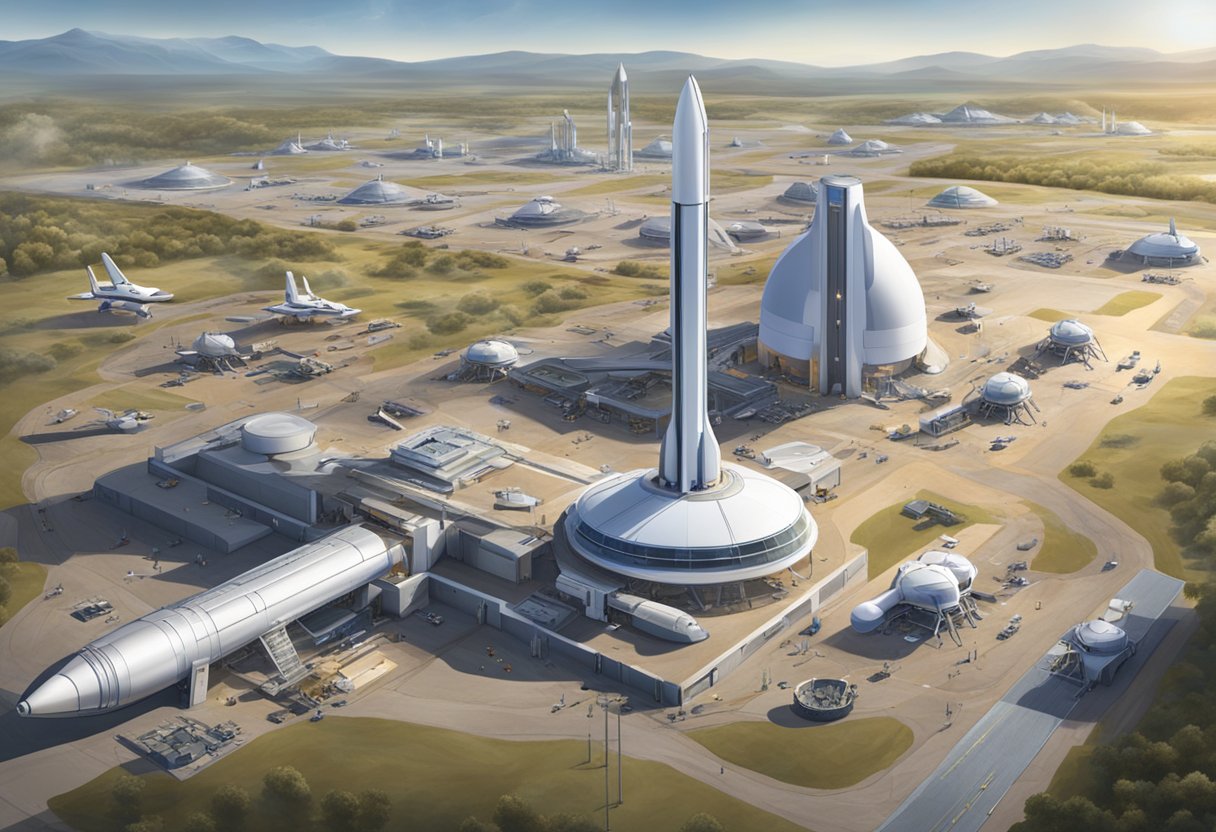
The private sector has played a significant role in the growth of the space industry in recent years. The commercial space industry has seen a surge in activity, with companies like SpaceX and Blue Origin leading the way.
This section will examine the role of the private sector in the growth of the space industry and the impact it has had on the global economy.
Commercial Space Ventures
The private sector has been instrumental in the development of commercial space ventures. Companies like SpaceX and Blue Origin have made significant investments in space exploration, and their efforts have led to the development of new technologies and capabilities.
These companies have also been successful in reducing the cost of space exploration, making it more accessible to a broader range of organizations.
Investor Confidence and Capital Inflow
Investor confidence has been a critical factor in the growth of the space industry. Private investors have been willing to invest significant amounts of capital in space-related companies, leading to a surge in funding for the industry.
According to Deloitte Insights, the global space sector had attracted PE investments of about US$272 billion into 1,791 unique companies as of the end of 2022.
This influx of capital has enabled companies to develop new technologies and capabilities, driving innovation in the industry.
Public-Private Partnerships
Public-private partnerships have also played a significant role in the growth of the space industry. Governments and space agencies have partnered with private companies to develop new technologies and capabilities, driving innovation and growth in the industry.
These partnerships have also enabled governments to reduce the cost of space exploration by leveraging the expertise and resources of private companies.
Global Space Economy Dynamics
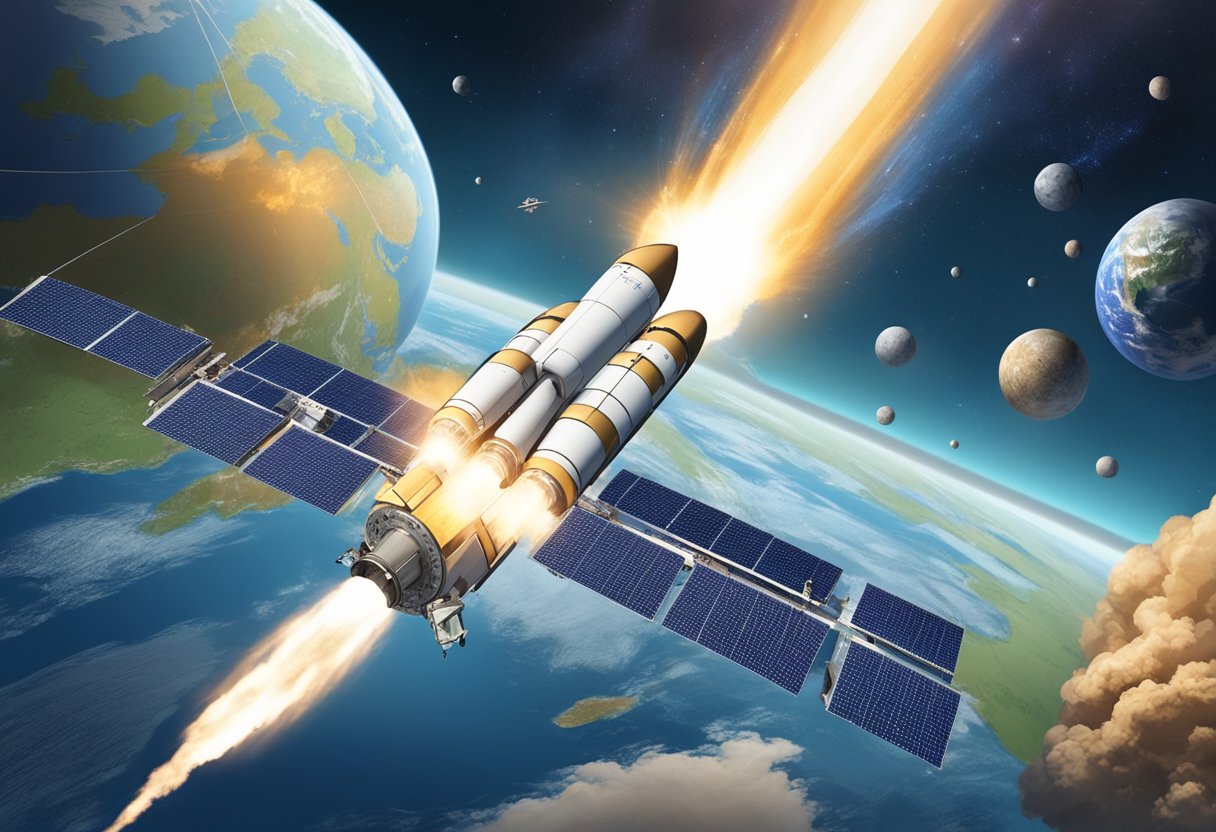
Space Spending by Country
Space exploration and development have become a significant contributor to the global economy. Countries around the world are investing in space exploration, and the space industry is growing at a rapid pace.
The United States, China, Russia, Europe, and India are among the top players in the space industry.
The United States spends the most on space exploration, with a budget of over $25 billion in 2022.
China is also investing heavily in space exploration, with a budget of over $8 billion in 2022.
Russia and Europe are also significant players in the space industry, with budgets of over $5 billion and $3 billion, respectively.
India is also increasing its space budget, with a budget of over $2 billion in 2022.
International Collaboration and Competition
International collaboration and competition are crucial factors in the growth of the space industry. Countries are working together to achieve common goals, such as exploring space and developing new technologies.
At the same time, there is also competition between countries to be the first to achieve certain milestones in space exploration.
The United States and Russia have a long history of collaboration in space exploration, dating back to the Apollo-Soyuz mission in 1975.
More recently, the International Space Station (ISS) is a prime example of international collaboration, with the United States, Russia, Europe, Japan, and Canada all contributing.
China is also making significant strides in space exploration and has its own space station, the Tiangong, which it plans to expand in the future. India is also making progress in space exploration and has launched several successful missions to the moon and Mars.
Advancements in Space Technology
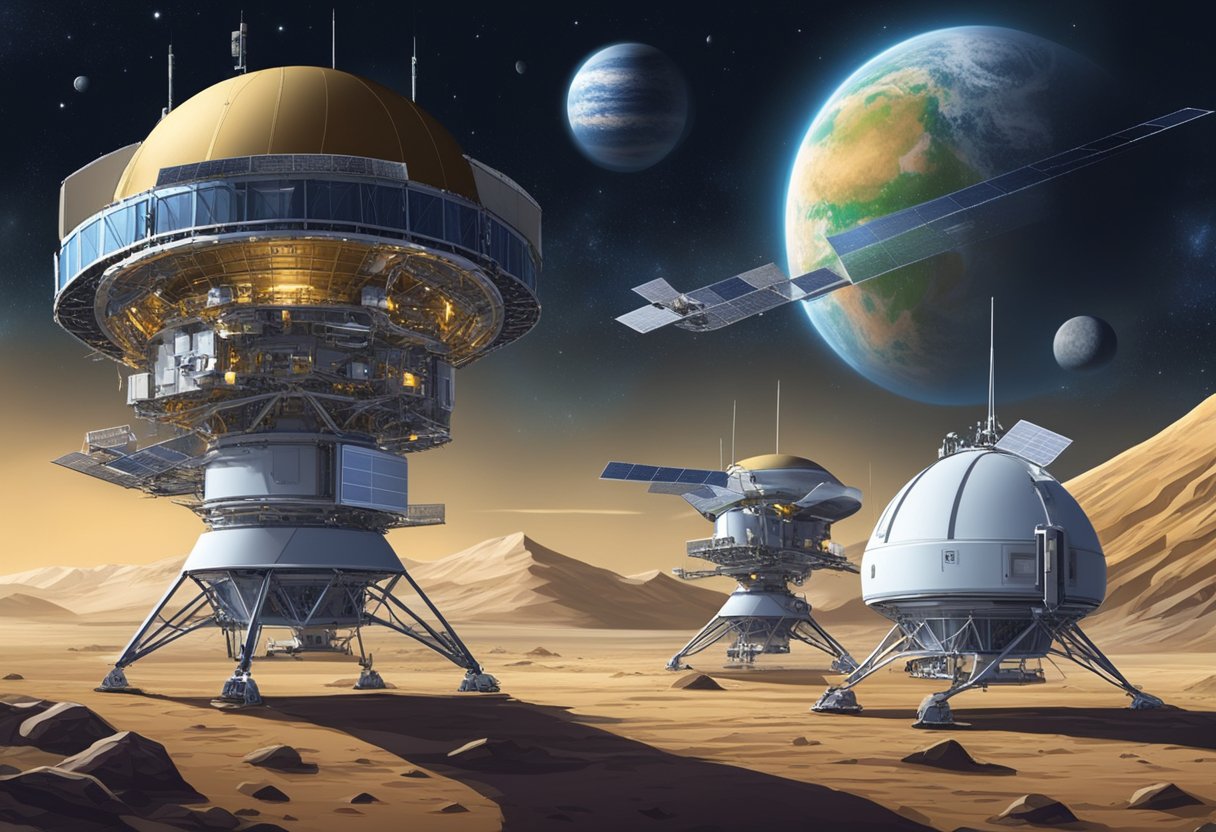
Space exploration has been a driving force behind the advancement of technology. The space industry has led to the development of numerous technological advancements that have had a significant impact on the global economy. This section will explore two critical areas of space technology advancement: Satellite and Launch Technology, and Space Infrastructure Development.
Satellite and Launch Technology
Satellite technology has been one of the most significant impacts of space exploration on the global economy. Satellites are used for a variety of purposes, including communication, navigation, and weather forecasting.
The use of satellites has revolutionized the way we communicate and has enabled us to connect with people across the globe.
Launch technology has also been a critical area of development in the space industry. The development of rockets and launch vehicles has made it possible to launch satellites and other payloads into space.
The use of reusable rockets has significantly reduced the cost of launching payloads into space, making space exploration more accessible to businesses and startups.
Space Infrastructure Development
The development of space infrastructure has been another critical area of advancement in the space industry. The development of space stations, habitats, and other structures has made it possible for humans to live and work in space.
The International Space Station (ISS) is a prime example of the development of space infrastructure. The ISS has been in orbit for over two decades and has enabled astronauts to conduct research and experiments in space.
Manufacturing and propulsion are also critical areas of development in space infrastructure. The development of in-space manufacturing has the potential to revolutionize the way we produce goods.
Propulsion technology has also been a critical area of development, with advancements in propulsion technology making it possible to explore further into space.
Societal Benefits of Space Exploration

Space exploration has brought about significant benefits to society. The following subsections highlight some of the key ways in which space exploration has contributed to societal advancements.
Improving Global Communications
One of the most significant benefits of space exploration is the improvement of global communications. Satellites in space have made it possible to transmit information across the globe in real-time.
This has revolutionized the way people communicate and has made it possible for people to stay connected regardless of their location.
The use of satellite technology has also made it possible to provide internet access to remote areas, which has helped to bridge the digital divide.
Monitoring Climate Change and Natural Disasters
Space exploration has also contributed to the monitoring of climate change and natural disasters.
Satellites in space can provide real-time data on weather patterns, which can help predict natural disasters such as hurricanes, floods, and earthquakes.
This information can be used to alert people in advance and help them prepare for the impending disaster.
Additionally, satellites can monitor the effects of climate change on the planet, providing valuable data that can be used to develop strategies to mitigate its effects.
Enhancing National Security
Space exploration has also played a crucial role in enhancing national security.
Satellites in space can be used to monitor the movement of troops and the installation of weapons systems. This information can be used to provide valuable intelligence to governments and aid in the prevention of potential threats.
Additionally, the use of satellite technology has made it possible to track the movement of ships and aircraft. This can help prevent illegal activities such as piracy and drug trafficking.
Overall, space exploration has brought about significant benefits to society.
The improvement of global communications, monitoring of climate change and natural disasters, and enhancement of national security are just a few of the ways in which space exploration has contributed to societal advancements.
According to the World Economic Forum, the space industry is expected to continue to grow in the coming years, providing even more opportunities for societal advancements.

